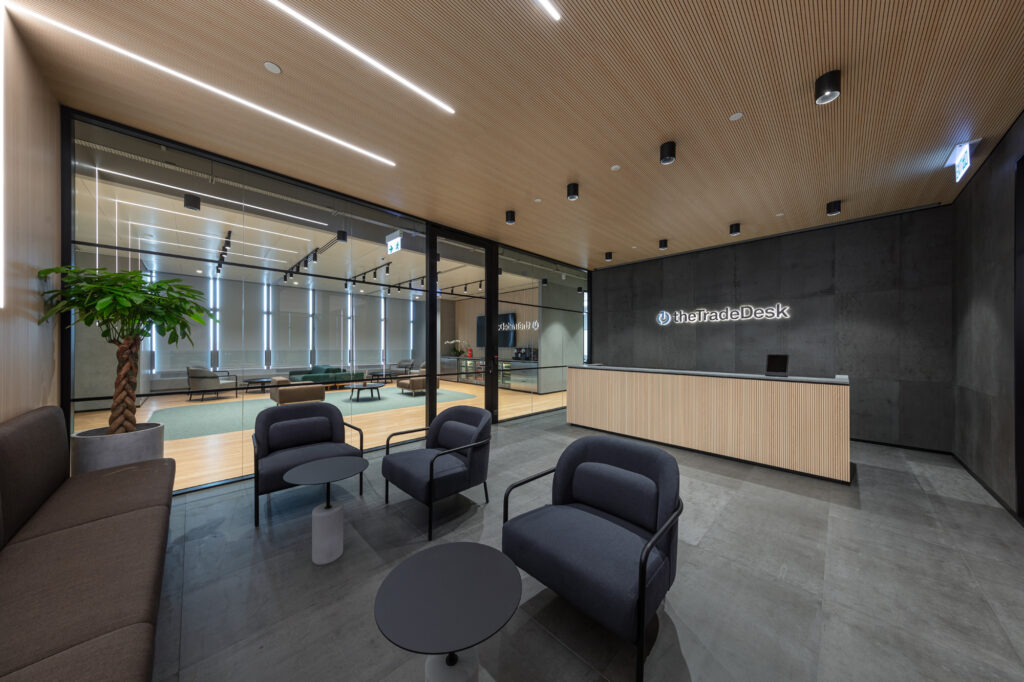Property Management Excellence in Hong Kong’s Premium Office Market .

Hong Kong’s position as Asia’s premier financial hub creates unique demands for property management excellence that exceed global standards whilst navigating complex regulatory frameworks, cultural expectations, and market dynamics. The territory’s premium commercial real estate market requires sophisticated approaches that balance international best practices with local requirements, creating environments that support multinational corporations whilst respecting traditional business customs and regulatory compliance. This comprehensive analysis explores the specialised strategies, operational excellence standards, and regulatory expertise required to achieve property management success in one of the world’s most demanding commercial property markets.
Understanding Hong Kong’s Commercial Property Landscape
Property management in Hong Kong operates within a sophisticated ecosystem characterised by intense competition, premium pricing, and exceptionally high tenant expectations that reflect the territory’s status as a global financial centre. The concentration of multinational corporations, investment banks, and professional services firms creates demand for world-class facilities and service standards that often exceed those found in other major metropolitan markets.
The unique regulatory environment, combining British common law traditions with Chinese administrative practices, creates complex compliance requirements that demand specialised expertise in building codes, fire safety regulations, and occupational health standards that influence every aspect of commercial property operations.
Hong Kong’s extreme population density and land scarcity have created a vertical city where commercial real estate values reach extraordinary levels, making operational efficiency and tenant satisfaction critical factors in maintaining property values and competitive positioning in this constrained market environment.
Market Structure and Competitive Dynamics
The dominance of major property developers such as Sun Hung Kai Properties, Henderson Land, and Swire Properties has created market standards that emphasise premium service delivery, advanced building systems, and comprehensive tenant support services that set benchmarks for property management excellence throughout the region.
Grade A office buildings in Central, Admiralty, and Tsim Sha Tsui command the highest rents globally, creating expectations for service quality and building performance that require sophisticated management approaches and substantial operational investment to maintain competitive positioning.
Regulatory Framework and Compliance Excellence
Hong Kong’s complex regulatory environment requires property management teams to navigate multiple layers of legislation, from the Buildings Ordinance and Fire Services Ordinance to environmental regulations and labour laws that significantly impact operational procedures and compliance costs.
Building Safety and Fire Protection Systems
The Fire Services Department (FSD) maintains stringent requirements for fire safety systems, emergency procedures, and building inspections that require continuous compliance monitoring and documentation. Property management teams must coordinate regular testing, maintenance, and certification of fire protection systems whilst ensuring tenant operations remain uninterrupted.
Building inspection requirements under the Buildings Department mandate periodic structural assessments, façade inspections, and maintenance certifications that require specialised expertise and careful scheduling to minimise tenant disruption whilst ensuring full regulatory compliance.
The Mandatory Building Inspection Scheme (MBIS) requires buildings over 30 years old to undergo comprehensive inspections every ten years, creating significant coordination challenges for property management teams responsible for managing complex renovation projects in occupied buildings.
Environmental and Energy Regulations
The Environmental Protection Department (EPD) enforces increasingly stringent environmental regulations that affect building operations, waste management, and energy consumption patterns. Commercial real estate properties must comply with air pollution control measures, noise regulations, and waste disposal requirements that influence operational procedures and costs.
Energy efficiency requirements under the Buildings Energy Efficiency Ordinance mandate minimum performance standards for building systems, creating compliance obligations that require continuous monitoring and potential system upgrades to maintain regulatory compliance whilst controlling operational costs.
Tenant Expectations and Service Excellence
Hong Kong’s commercial real estate market attracts tenants with exceptionally high expectations for service quality, building performance, and operational support that reflect the territory’s position as a premium business location and the sophisticated requirements of international corporations.
Premium Service Standards and Concierge Services
World-class concierge services have become standard expectations in premium office buildings, with property management teams providing comprehensive support including dining reservations, transportation coordination, event planning, and personal services that enhance tenant satisfaction and building differentiation.
Multilingual communication capabilities are essential for serving Hong Kong’s diverse international business community, with property management teams requiring fluency in English, Cantonese, and Mandarin to effectively serve tenant populations from across the Asia-Pacific region and beyond.
24/7 building operations and support services reflect the global nature of business conducted in Hong Kong’s financial district, with property management teams maintaining round-the-clock capabilities to support international operations and varying business schedules.
Technology Integration and Digital Services
Advanced building management systems integrated with mobile applications provide tenants with seamless access to building services, maintenance requests, and facility bookings through sophisticated digital platforms that enhance user experience whilst improving operational efficiency.
Smart building technologies including occupancy sensors, environmental monitoring systems, and predictive maintenance platforms enable property management teams to optimise building performance whilst providing tenants with data-driven insights into their space utilisation and environmental conditions.
High-speed connectivity and advanced telecommunications infrastructure are mandatory requirements for attracting and retaining premium tenants, with property management teams coordinating with multiple service providers to ensure redundant, high-capacity data services that support critical business operations.
Cultural Sensitivity and Local Business Practices
Property management in Hong Kong requires deep understanding of Chinese business culture, feng shui considerations, and traditional practices that influence tenant decision-making, space utilisation, and building operations in ways that may not be apparent to international property management professionals.
Feng Shui Integration and Cultural Considerations
Feng shui principles significantly influence commercial real estate decisions in Hong Kong, with property management teams required to understand and accommodate traditional beliefs about building orientation, lobby design, and office layout that can impact tenant satisfaction and lease negotiations.
Cultural calendar considerations including Chinese New Year, Mid-Autumn Festival, and other traditional celebrations require careful planning for building operations, security arrangements, and tenant communications that respect cultural significance whilst maintaining operational continuity.
Gift-giving protocols and relationship-building practices in Chinese business culture require property management teams to understand appropriate customs for tenant relations, vendor management, and professional interactions that support long-term business relationships.
Guanxi and Relationship Management
The importance of guanxi (relationship networks) in Hong Kong business culture requires property management professionals to invest significant time and effort in building and maintaining personal relationships with tenants, vendors, government officials, and professional service providers.
Face-saving considerations influence conflict resolution, complaint handling, and service delivery approaches, with property management teams required to address issues in ways that preserve dignity and respect cultural sensitivities whilst achieving operational objectives.
Premium Building Systems and Infrastructure
Hong Kong’s commercial real estate market demands sophisticated building systems that provide exceptional performance, reliability, and efficiency whilst operating in challenging environmental conditions including high humidity, typhoons, and extreme temperature variations.
Advanced HVAC and Environmental Control
Tropical climate challenges require sophisticated HVAC systems capable of maintaining precise temperature and humidity control whilst operating efficiently in Hong Kong’s challenging environmental conditions that include seasonal typhoons, high humidity, and significant temperature variations.
Indoor air quality management systems exceed international standards to address Hong Kong’s air pollution challenges, with advanced filtration systems and continuous monitoring ensuring optimal indoor environments that support tenant health and productivity.
Energy efficiency optimisation through building automation systems and smart controls enables property management teams to minimise operating costs whilst maintaining superior comfort conditions that meet tenant expectations for premium office environments.
Security and Access Control Systems
Multi-layered security systems incorporating advanced access control, surveillance technology, and screening procedures address the security requirements of multinational corporations and financial institutions that handle sensitive information and high-value transactions.
Visitor management systems provide comprehensive tracking and screening capabilities whilst maintaining the professional atmosphere and efficient access required in Hong Kong’s fast-paced business environment.
Emergency response procedures coordinated with local authorities ensure rapid response capabilities for various scenarios including medical emergencies, security incidents, and weather-related events that could impact building operations or tenant safety.
Financial Management and Cost Optimisation
Property management in Hong Kong’s premium office market requires sophisticated financial management approaches that balance service excellence with cost control whilst maintaining competitive positioning in one of the world’s most expensive commercial property markets.
Service Charge Management and Transparency
Transparent service charge calculations and regular reporting provide tenants with clear understanding of operating costs whilst ensuring fair allocation of expenses across tenant populations with varying space requirements and usage patterns.
Benchmarking against comparable properties enables property management teams to demonstrate competitive cost structures whilst identifying optimisation opportunities that can improve operational efficiency without compromising service quality.
Value engineering approaches to maintenance, energy management, and service delivery help control costs whilst maintaining the premium standards required to attract and retain high-quality tenants in Hong Kong’s competitive commercial real estate market.
Insurance and Risk Management
Comprehensive insurance coverage addressing property damage, business interruption, and liability risks requires specialised knowledge of Hong Kong’s insurance market and regulatory requirements that differ significantly from other international markets.
Typhoon and extreme weather preparedness requires significant investment in building protection systems, emergency supplies, and communication procedures that ensure tenant safety whilst minimising business disruption during severe weather events.
Political risk considerations unique to Hong Kong’s position between China and international markets require careful assessment and management strategies that address potential impacts on property operations and tenant requirements.
Vendor Management and Service Partnerships
Success in Hong Kong’s property management market requires sophisticated vendor management approaches that balance local expertise with international standards whilst navigating complex regulatory requirements and cultural considerations.
Local Vendor Integration and Quality Control
Established relationships with local service providers who understand Hong Kong’s unique regulatory environment, cultural requirements, and operational challenges are essential for maintaining service quality whilst ensuring regulatory compliance.
Quality control systems and performance monitoring ensure vendor services meet international standards whilst adapting to local conditions and regulatory requirements that may differ from global best practices.
Emergency response capabilities require vendors who can provide rapid response during typhoons, protests, or other disruptions that periodically affect Hong Kong’s business operations and require immediate building management response.
International Standard Implementation
Integration of international best practices with local requirements requires careful adaptation of global property management standards to Hong Kong’s unique regulatory environment, cultural expectations, and operational challenges.
Professional development and training programmes ensure property management teams maintain current knowledge of both international best practices and local regulatory changes that could impact building operations or compliance requirements.
Certification and accreditation programmes including LEED, BREEAM, and local Green Building certifications require specialised expertise in navigating multiple certification systems whilst maintaining operational efficiency and tenant satisfaction.
Technology Innovation and Smart Building Integration
Hong Kong’s position as a technology hub creates expectations for advanced building systems and digital integration that enhance tenant experience whilst improving operational efficiency and providing competitive differentiation in the premium commercial real estate market.
IoT Integration and Predictive Analytics
Internet of Things sensors throughout building systems provide real-time monitoring of equipment performance, environmental conditions, and space utilisation patterns that enable predictive maintenance strategies and operational optimisation.
Data analytics platforms integrate information from multiple building systems to provide comprehensive insights into building performance, energy consumption, and tenant usage patterns that support strategic decision-making and continuous improvement initiatives.
Mobile applications and digital platforms provide tenants with convenient access to building services, maintenance requests, and facility information whilst generating valuable data about service utilisation and tenant preferences.
Sustainability and Green Building Operations
Hong Kong Green Building Council certification requires ongoing monitoring and reporting of environmental performance metrics that demonstrate sustainable operations whilst meeting tenant expectations for environmental responsibility.
Energy management systems optimise consumption patterns whilst maintaining comfort standards, with renewable energy integration and efficiency measures reducing operational costs whilst supporting environmental objectives that increasingly influence tenant selection decisions.
Waste reduction and recycling programmes address Hong Kong’s significant waste management challenges whilst demonstrating environmental stewardship that aligns with corporate sustainability initiatives of multinational tenant organisations.
Future Trends and Market Evolution
Hong Kong’s commercial real estate market continues evolving in response to changing business patterns, technological advancement, and regional economic developments that create new opportunities and challenges for property management professionals.
Greater Bay Area Integration
The development of the Greater Bay Area creates new opportunities for Hong Kong’s commercial real estate market whilst requiring property management teams to understand evolving business patterns and tenant requirements as companies integrate operations across the region.
Cross-border business facilitation services become increasingly important as tenants seek to leverage Hong Kong’s unique position whilst accessing opportunities in mainland China and the broader APAC region.
Hybrid Work and Space Utilisation
Changing work patterns following global remote work adoption require property management teams to adapt building services, space configurations, and technology support to accommodate hybrid work arrangements whilst maintaining the collaborative advantages of premium office locations.
Flexible space solutions and amenity enhancements help differentiate premium buildings whilst providing tenants with the adaptability required to manage changing workforce patterns and business requirements.
Conclusion: Excellence in Hong Kong Property Management
Property management excellence in Hong Kong’s premium office market requires sophisticated integration of international best practices with deep local expertise, cultural sensitivity, and regulatory knowledge that addresses the unique challenges and opportunities of this dynamic market environment.
Success demands continuous adaptation to evolving tenant expectations, regulatory requirements, and market conditions whilst maintaining the service excellence and operational performance that define Hong Kong’s position as Asia’s premier business location.
The territory’s role as a bridge between China and international markets creates distinctive requirements that reward property management professionals who combine global expertise with local knowledge, cultural sensitivity, and operational excellence that supports tenant success whilst maintaining competitive positioning in one of the world’s most demanding commercial real estate markets.
FAQs
What makes property management in Hong Kong different from other major cities?
How do cultural factors influence property management decisions in Hong Kong?
What are the key regulatory compliance requirements for commercial buildings in Hong Kong?
How do typhoons and extreme weather affect property management operations in Hong Kong?
What technology investments provide the best ROI in Hong Kong's premium office market?
How important is sustainability certification for Hong Kong commercial properties?
What service levels distinguish premium buildings in Hong Kong's market?
What are the main cost considerations for commercial property management in Hong Kong?
How does vendor management work in Hong Kong's property management market?
Sources and References
This analysis draws from Hong Kong government agencies, professional property organisations, and leading commercial real estate authorities:
Government and Regulatory Sources
- Buildings Department Hong Kong: Building Regulations and Safety – https://www.bd.gov.hk/
- Fire Services Department: Fire Safety Requirements – https://www.hkfsd.gov.hk/
- Environmental Protection Department: Environmental Compliance – https://www.epd.gov.hk/
- Lands Department: Land and Property Administration – https://www.landsd.gov.hk/
Professional Organisations and Industry Standards
- Hong Kong Institute of Real Estate Administration (HIREA): Property Management Standards – https://www.hirea.org.hk/
- Real Estate Developers Association of Hong Kong: Industry Best Practices
- Hong Kong Green Building Council: Sustainable Building Operations – https://www.hkgbc.org.hk/
- International Facility Management Association Hong Kong: IFMA Professional Standards – https://www.ifma.org.hk/
Technology and Innovation Sources
- Hong Kong Science and Technology Parks: Smart Building Technology
- Electrical and Mechanical Services Department: Building Services Innovation
- Hong Kong Productivity Council: Building Technology Research
Research compiled and analysed as of September 2025. Hong Kong’s property management and commercial real estate markets continue evolving with regulatory changes and market developments. For current compliance requirements and best practice guidance, consult with Hong Kong-based property management professionals and regulatory specialists.



